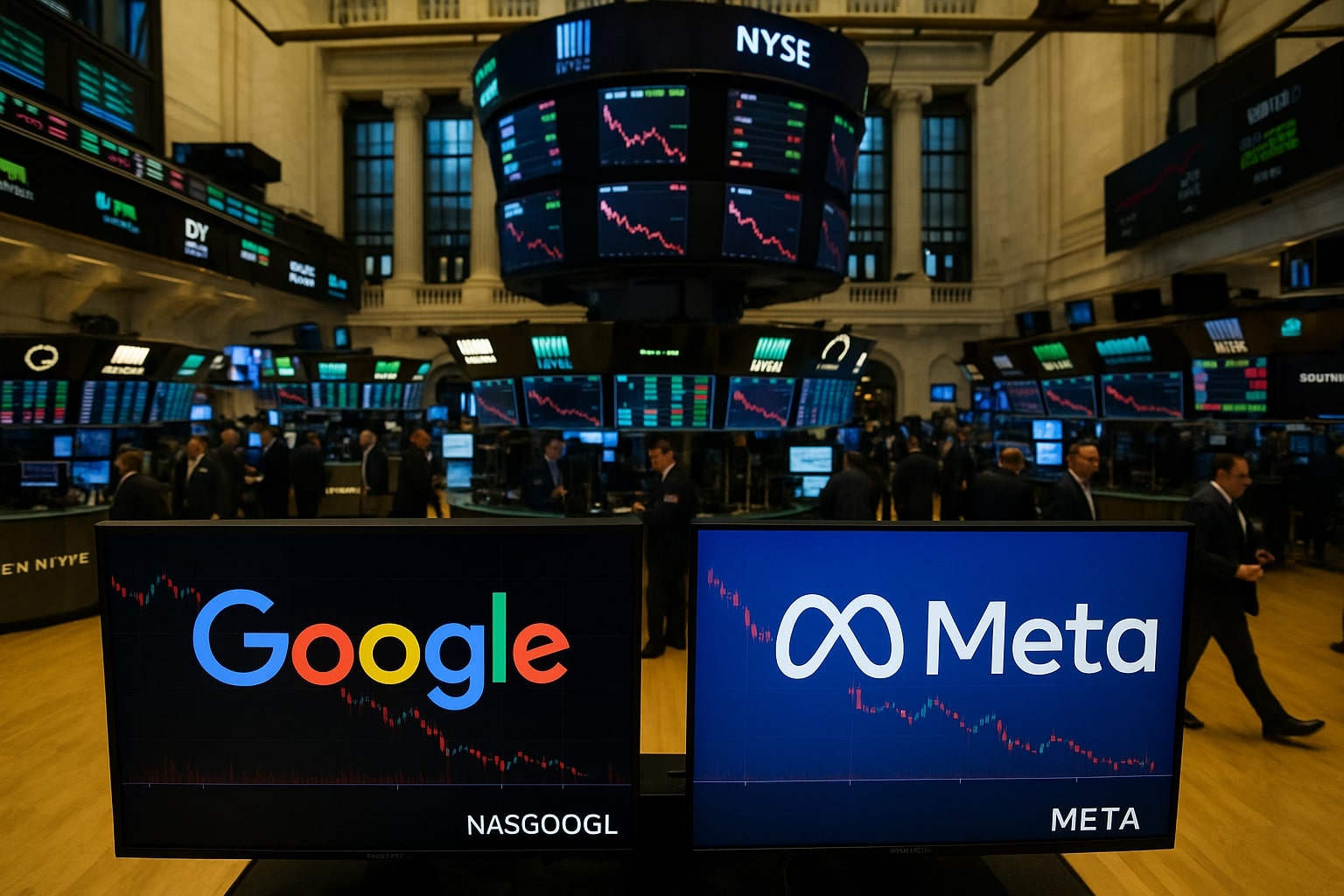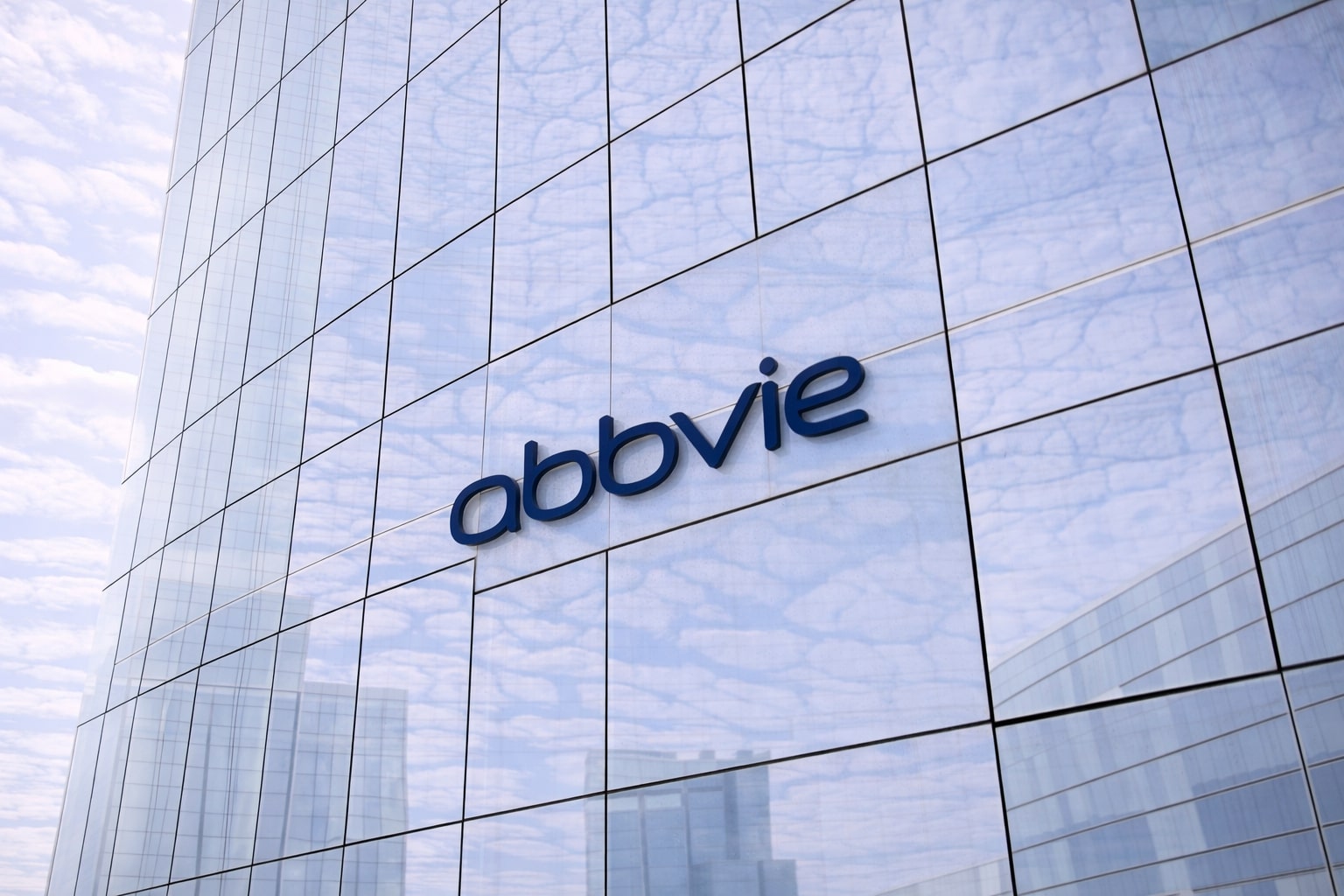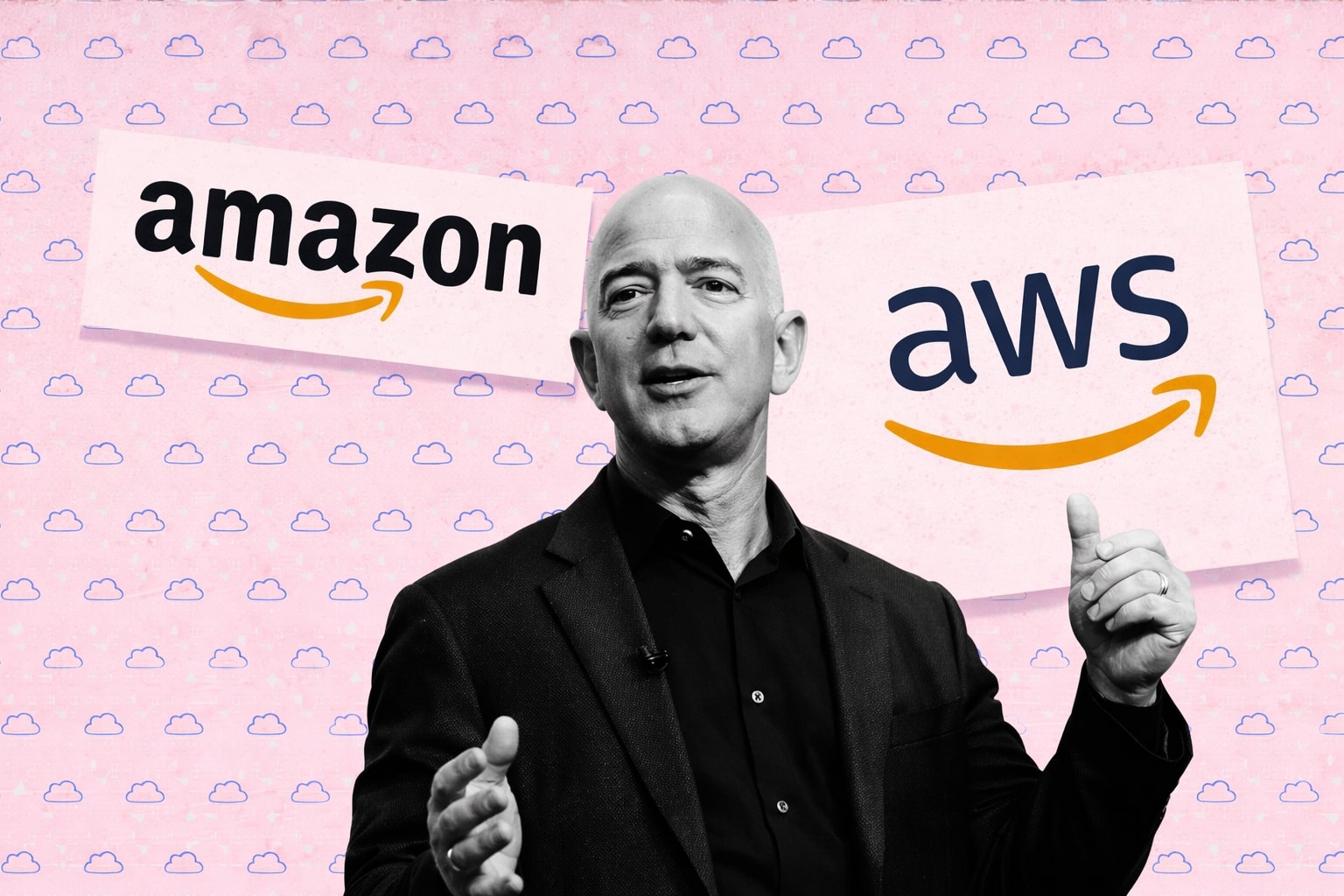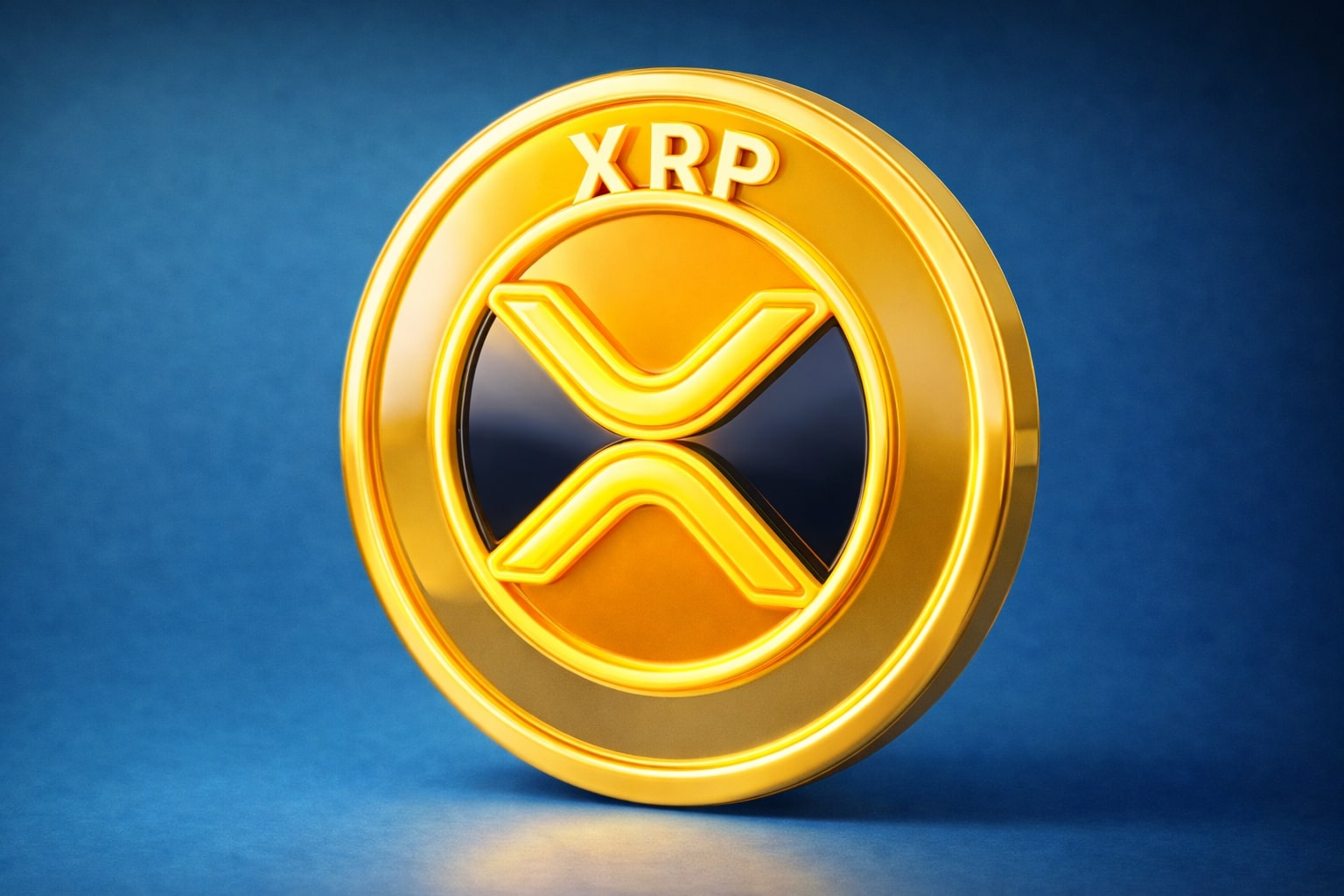
Meta Stock vs Google Stock Forecast: META Surges Ahead of GOOGL in AI and Ads
Meta’s 40% Margins vs Google’s Cloud Growth Define Investor Choice | That's TrasdingNEWS
Meta (NASDAQ:META) vs Alphabet (NASDAQ:GOOGL): Two AI Titans Diverging in Strategy
Meta stock (NASDAQ:META) and Alphabet stock (NASDAQ:GOOGL) remain the center of Wall Street’s AI narrative in 2025, each delivering double-digit revenue growth, strong margins, and multibillion-dollar AI infrastructure commitments. Yet, the two companies are executing their strategies differently, and the divergence in capital allocation, margins, and market share battles defines how investors should view them for the next leg higher.
Revenue Growth Trajectory and Ad Market Strength
Meta posted Q2 2025 revenue of $47.5 billion, up 22% year-over-year, with net income of $18.3 billion and diluted EPS of $7.14, a 20.9% beat over estimates. Daily active people across Facebook, Instagram, Messenger, and WhatsApp reached 3.48 billion, with ad impressions rising 11% and ad prices up 9%. This pushed operating margins to 43%, near peak levels. Alphabet, by contrast, delivered $96.4 billion in Q2 revenue, up 14% YoY, with advertising contributing $71.3 billion, growing 10.4%. Within that, Google Search surged 12%, YouTube climbed 13%, while Google Network slipped 1%. Google Cloud, however, was the standout at $13.6 billion, up 32% YoY, highlighting the company’s enterprise strength versus Meta’s consumer-driven base.
Profitability and Margin Power
Meta’s trailing twelve-month net income sits at $71.5 billion on 40% profit margins, with return on equity at 40.65%. Operating cash flow stands at $102 billion, free cash flow at $31.9 billion, supporting aggressive capital expenditures of up to $118 billion in 2025 and potentially $150 billion in 2026. Alphabet is also flexing its profitability muscle, with a 31.1% net margin and $115 billion TTM net income. Its return on equity of 34.8% is strong but trails Meta’s, while Alphabet’s fortress balance sheet with $95 billion in cash and minimal debt-to-equity of 11.5% gives it greater optionality. Meta’s advantage lies in higher ad margins, while Google’s strength is its diversified mix across cloud, YouTube, and services.
AI Infrastructure and Strategic Spending
Meta has tied its future to Llama 5 and the superintelligence narrative, hiring elite talent at compensation packages reportedly hitting $1.5 billion for top engineers. It signed a $10 billion Google Cloud deal for compute, a notable irony given Google is both a rival and supplier. Alphabet, meanwhile, raised its 2025 CAPEX outlook to $85 billion, two-thirds directed to servers and data centers, with $3 billion allocated to its 14% stake in Anthropic, now valued above $60 billion. Google’s AI flywheel — feeding data from billions of users into Gemini and monetizing via cloud — contrasts Meta’s distribution edge across 4 billion monthly active users embedding AI assistants directly into consumer platforms.
Market Share, Ecosystem, and User Engagement
Meta’s Reels has closed the gap with TikTok, while Threads is monetizing against X. Engagement across its family of apps remains resilient, locking users deeper into its ad ecosystem. Alphabet still dominates with Search, YouTube, Maps, and Gmail, serving billions, but market share slipped below 90% in search for the first time since 2015. At 89.6%, Google Search remains a monopoly, but each 1% share equates to $2–2.5 billion in annual revenue, making even fractional losses meaningful. YouTube is valued by analysts as a $500–550 billion asset alone, giving Alphabet a moat beyond Search erosion. Meta’s distribution advantage is immediate consumer-facing engagement, while Google’s moat remains enterprise-driven scale across services and cloud.
Valuation and Market Sentiment
Meta Platforms (NASDAQ:META) trades at a forward P/E of 27.9x, with Wall Street price targets averaging $873, implying ~18% upside from its current $738/share. Bullish analysts see as high as $1,086/share, supported by projected EPS of $27.96 in 2025 (+17% YoY) and $29.88 in 2026 (+7%). Alphabet (NASDAQ:GOOGL) trades at a more modest ~23x P/E, with fair value estimates near $238/share against its current $213/share. Analysts expect EPS of $9.99 in 2025 (+24%), $10.64 in 2026, and $12.08 in 2027, averaging 14.5% growth annually. The valuation discount makes Google cheaper relative to growth, but Meta commands a premium for higher margins and direct AI monetization potential.
Insider and Institutional Moves
Meta insider transactions have shown limited selling, but hedge fund manager David Tepper cut his stake by 27% in Q2, signaling some caution after the stock’s 44% 12-month run. Still, 58 of 67 analysts rate it a Buy/Strong Buy, showing broad confidence. Alphabet insider activity revealed Tepper sold 25% of his GOOGL stake in Q2, reducing exposure even as Wall Street remains bullish, with 54 of 66 analysts rating it Buy/Strong Buy. The divergence highlights institutional caution in both names, but broader consensus remains in favor.
Buy, Sell, or Hold Verdicts
Meta remains the higher-margin, faster-growing consumer AI play with unmatched distribution and pricing power. Its valuation premium is justified by 40% margins, scale of user base, and upside toward $900–$1,000/share in the next 12 months. Alphabet offers a cheaper entry into AI infrastructure and enterprise adoption with steady growth across Search, YouTube, and Cloud, but its near-term upside is lower at 8–10% annually, targeting $238/share. Based on the data, Meta (NASDAQ:META) is a Buy, while Alphabet (NASDAQ:GOOGL) is a Hold at current levels, attractive on dips toward the $190–$200 range.
That's TradingNEWS
Read More
-
AbbVie Stock Price Forecast - ABBV at $229 Turns the Humira Cliff Into a 2026 Growth Engine
02.01.2026 · TradingNEWS ArchiveStocks
-
XRP Price Forecast - XRP-USD Nears $2 as $1.80 Support and Shrinking Supply Point to $2.60 Target
02.01.2026 · TradingNEWS ArchiveCrypto
-
Oil Price Forecast - Oil Slide Into 2026: WTI Stuck at $57, Brent at $60
02.01.2026 · TradingNEWS ArchiveCommodities
-
Stock Market Today: Nasdaq Hits 23,467 as Nvidia (NVDA), Micron (MU) and Baidu (BIDU) Drive AI Surge
02.01.2026 · TradingNEWS ArchiveMarkets
-
GBP/USD Price Forecast: Pound Holds 1.3450 as Fed–BoE Split Keeps Bulls Aiming at 1.37
02.01.2026 · TradingNEWS ArchiveForex


















